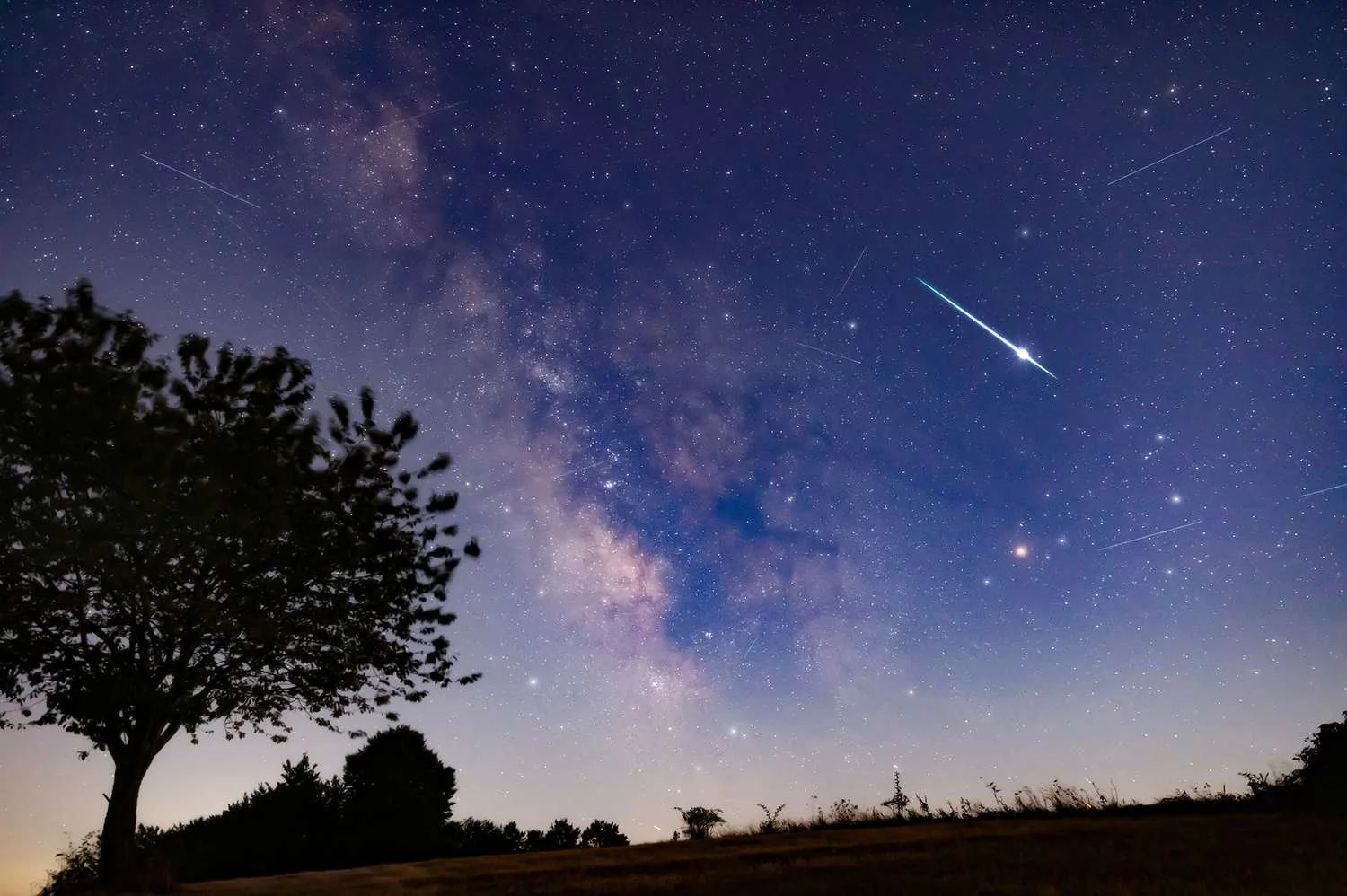Image source: Travel + Leisure
November Sky
Can it possibly be November already? Time is flying and the seasons rush through the allotted days sending our home planet through the thirteen constellations known as the zodiac. The significance of that idea is the location of our sun during the day as it was thousands of years ago and was thought to influence the lives of humans. Nowadays the sun is in a different constellation during the day because our planet wobbles on its axis in addition to rotating on it as it regularly continues its never-ending travels in its fixed orbit.
The month also brings another meteor shower opportunity of the wonderful Leonids. If you were a fifth grade student in the 1990s you may have been introduced to this regular event in the reading book. The Night of the Leonids introduced me to meteor showers about the same time I was trained how to use the portable planetarium our school district acquired. What introduced you to meteor showers and the pleasure of sky watching?
The Full Moon will occur on November 5, officially at 7:19 AM. With the time change back to normal it will be dark an hour earlier, which makes astronomy buffs happy. As full darkness falls Saturn will be one lone planet gracing the sky, not as bright as usual, but still lovely to see. If you look high in the southeast you will be sure to see it unless the clouds are in the way. Neptune is also there, less than a finger-width from Saturn, but so far away it cannot be seen with the naked eye.
If you are out and about before dawn you will be able to see Venus low in the eastern sky until December when it will be out of sight. Jupiter will be visible in the late evening emerging from the eastern horizon as the world turns. A clear view of the east and west horizons does make for wonderful pairings of planets throughout the years. Before I knew any astronomy I watched Jupiter and Saturn in the east when I took walks through my neighborhood before all the newer subdivisions and businesses were built, and I wondered which planets they were. A little curiosity and means of explaining the questions that arise when we look up make such a difference.
The ‘water constellations’ still march across the southern sky with the Great Square of Pegasus still almost overhead but slowly drifting towards the west as earth rotates on its axis. Because at this time of the year we are looking far away from the plane of the Milky Way galaxy, there are few stars, other than the stars of the water denizens which are all less than one magnitude, except for Fomalhaut in the mouth of Piscis Austrinus. These are members of this region of the sky: Cetus, Pisces, Aquarius, Piscis Austrinus, Capricornus, and Eridinus. There are a variety of stories of their beginnings in mythology available to enjoy available online and perhaps at your local library.
Constellations emerging from the east from the horizon towards the zenith include Orion, Gemini, Auriga, Taurus, and Perseus. In the north, there are the two bears whose stars also form the asterisms of the Big and Little Dippers. They are accompanied by King Cepheus, his queen, Cassiopeia, and Draco.
Facing west will allow a view of the summer triangle asterism we have written about often over the past weeks. Aquila, Sagitta, Cygnus, with the Baseball Diamond overhead, drifting inevitably towards the western horizon throughout the night.
Since the stores are diligently displaying Christmas gifts already, and you may have a child who is begging for a telescope for a present, slow down and research what would be needed. A rock-steady base is critical, as are decent optics. There are several reputable internet sites that rate telescopes. Both Astronomy and Sky & Telescope magazines have online access. Locally you might consult with the folks who operate the Christina Torres Memorial Observatory at the Resaca De La Palma State Park in Olmito. The South Texas Astronomical Society will also be willing to share suggestions and they often present star parties which let visitors see what the differences between telescopes are to help make decisions.
Until next week, KLU and feel free to send an email with questions or comments to me at carolutsinger@att.net.

